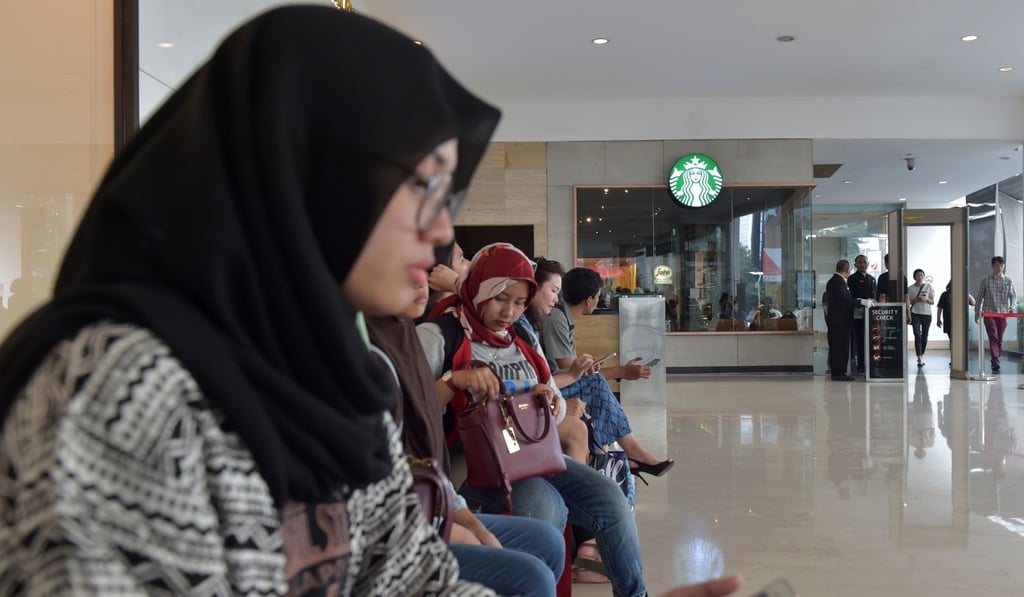How social media inspired Indonesia’s born-again ‘hijrah’ Muslim millennials
- From Islamic reality TV shows to Facebook celebrities, social media is playing a key role in encouraging Indonesian millennials to turn their backs on flawed, sinful lives and embrace religion in a process known as hijrah.
- That has raised the hopes of politicians hoping to harness the younger generation’s voting power, but there’s a problem – some now see democracy as haram

The IT salesman, 34, embraces flexible working and as it’s raining heavily outside, it’s only natural that this comfortable spot in the lobby of a five-star hotel might appeal to someone like him.
Except that it was not the rain that brought him here, but a different kind of guidance from above altogether. This is a locally owned cafe that gets Mardiansyah’s seal of approval because he prefers not to give his money to Western, non-Muslim, companies like Starbucks. And besides, there is something else about it that strikes a chord.
“I chose this place because they don’t play music here,” he says, explaining that he recently came to view music as haram (forbidden). “I really don’t want to hang out at the malls because of the music, and I would prefer not to drink coffee at Starbucks, but that doesn’t mean that I avoid them altogether. If I had another place to go to, I’d go there.”

Mardiansyah is among a growing number of young Indonesian Muslims who have chosen to leave behind flawed, sinful lives for purer, more Islamic ones in a social movement that has come to be known as hijrah , which takes its name from the historical migration of the Prophet Mohammed from Mecca to Medina in the seventh century to avoid persecution.
“In Indonesia, hijrah recently shifted from its theological meaning to a cultural one that marks a moment when a person abandons their bad behaviour for a better lifestyle according to Islam,” explains Muhammad As’ad, lecturer at the University of Hasyim Asy’ari in East Java. “Those [involved] are typically middle-class young people, particularly university students. They’re educated and financially wealthier than people in rural areas, so are more inclined to hijrah as it is popularised online via social networks.”